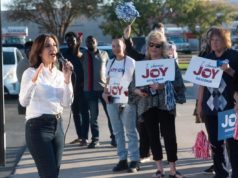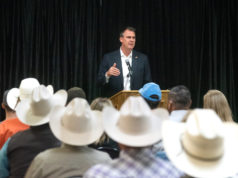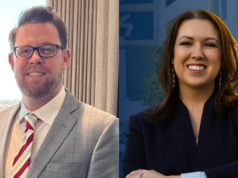
Since the 1990s, both education and social policy have shifted gears away from coordinated, comprehensive efforts to fight poverty and toward reward-and-punish policies to address inequality.
A new generation of primarily neoliberal and conservative theorists have forsaken the task of understanding the full complexity of social and economic dilemmas. These “reformers” have sought to leverage incentives and disincentives that will prompt market-driven solutions to educational and economic inequities.
In my field (education), reform grew out of our “liberal PTSD” from supposedly losing the War on Poverty. Reformers rejected traditional social science and the allegedly impossible task of addressing the myriad ways poverty undermines education systems. They embraced a test, sort, reward and punish shortcut to fixing schools as a way to repair the broken steps on the ladder to economic opportunity.
University of Texas scholar Christopher King describes the failure of a similar, punitive mindset among social-work theorists. King, a researcher for the Ray Marshall Center, decries the “‘Robbing Peter to pay Paul’” mindset as “a recipe for failure.” A cornerstone of this coarse mentality was the Clinton-era welfare reform that was supposed to “end welfare as we know it.” The resulting program, known as “Work First,” focused on pushing poor mothers to get off welfare and into dead-end jobs.
UPCOMING
The next installment of the Practice and Policy Lecture Series will feature the Oklahoma Department of Mental Health and Substance Abuse Services’ Savannah Kalman. Her lecture, Suicide Prevention in Oklahoma, will take place between noon and 1 p.m. Wednesday, March 23. For more information, visit OKDHS.org.
King’s presentation to the Oklahoma Policy and Practice Lecture Series, “Transforming U.S. Development Policies for the 21st Century,” is a seminal work that promises a new, humane, science-based, evidence-driven approach to expanding economic opportunity. A first step toward scaling up the social policies required to succeed in the global economy is to get over the “Work-First Policy Hangover.” He notes that, “Work-first is now widely discredited on numerous fronts.” The mentality of ending welfare as we knew it pushed under-prepared poor people into low-wage jobs, thus leading to even more wage stagnation. King cites research explaining how the benefits of forcing under-skilled welfare recipients in the job market “tend to fade out, while skills investments persist over time.”
King then cites “Labor/Management Partnerships” as a key to creating collaborative systems that educate and train poor people for good-paying jobs. He calls for a more comprehensive commitment to workforce development that includes a significantly larger investment on the part of government and, ideally, representation of workers’ interests by organized labor. In other words, we must reject the reflexive anti-union mentality of recent years and create apprenticeship-style systems for educating workers.
Impressed by King’s win-win proposals for the entire nation, I followed the link King provided to his evaluation of such an approach in Tulsa. King praised the community action program (CAP) known as CareerAdvance. It provided wraparound services and peer supports for under-trained workers, and it produced positive and sustainable results. King acknowledges that the length and the intensity of CareerAdvance creates sustainability problems, but he explains why this holistic program is worth the effort. To ensure its sustainability, we must commit to “a two-generation anti-poverty strategy investing in career pathway and training for adults and early education for their children.”
King urges us to commit to job coaching and, when appropriate, to reaching out to families with toddlers. We must build on Tulsa’s excellent pioneering efforts and further “reinforce links between adult and child programs to emphasize whole-family development.” He realizes that Oklahoma has fiscal constraints, but he urges us to emphasize the role of health care providers, hospitals and, when appropriate, early education providers.
OK, I know King’s analysis sounds wonky, but actually it is quite sound.
RELATED
The Gig Economy: Potential promise and pitfalls by John Thompson
King’s presentation was underwritten not by bleeding-heart liberals, but by the Federal Reserve Bank in Kansas City. It faces the hard facts of economic life. America is flirting with the prospect of becoming a full-fledged gig economy. The opportunities for creating well-compensated careers are being replaced by the quest for one low-paid task after another. As the middle class shrinks, we must ask whether we want to abandon the idea that our children and grandchildren have the opportunities that Baby Boomers enjoyed.
The realists’ approach is to admit that we don’t know how to devise top-down social-engineering systems that use incentives and disincentives to reprogram workers, welfare recipients or teachers.
We know how to mentor our children, however. We have centuries of success in creating apprenticeships for workers, professionals, craftspersons and artists. And, the same applies to improving our public education and early education programs.
We all benefit from building welcoming and caring cross-generational relationships. Rather than reward and punish our democracy into becoming a leaner, meaner competitor in the global marketplace, we must bond together and embrace the challenge of creating opportunity for all in the 21st Century.






















